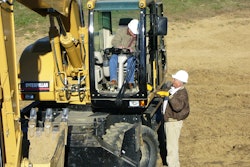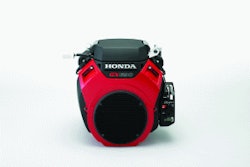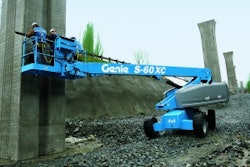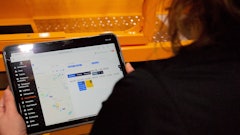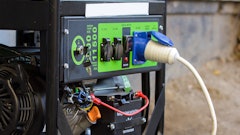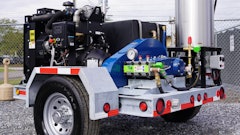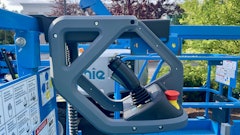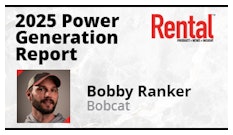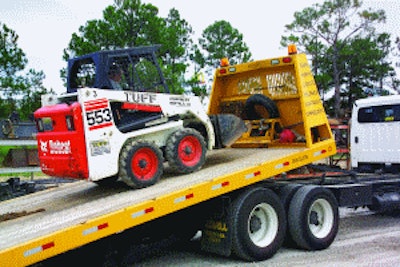
When a customer rents equipment from you, anything can happen - and usually does. That's why it's important to reduce your business' liability with the proper insurance coverage, as well as appropriate policies to minimize exposure.
Make sure you're covered
According to Matthew Davis, regional manager at National Insurance Specialists, all equipment rental businesses should have the usual insurance coverage for general liability, property, inland marine and auto. In addition, he also recommends coverage for conversion and business income.
"Conversion protects for theft by customer, and business income will protect you for the actual loss of your net profit, plus continuing expenses - including loss of rents - that results from the necessary suspension of your operations during the period of restoration caused by direct physical damage to property at an insured location," he says.
What about Loss/Damage Waivers?
Many rental business offer a loss/damage waiver (LDW) to customers. It can be a benefit to both parties, as it can be profit center to the rental company while affording customers some protection in the event that equipment is lost, stolen or damaged. Or does it?
Davis warns that LDWs don't offer complete protection. "Damage waivers are not insurance and should never be referred to as such," he says. "Also, the consumer is still responsible for all manufacturer and rental company recommendations and requirements."
Also, many rental companies today are reluctant to sell the LDW because it increases the cost to the customer at a time when few can afford it.
Jim Ricker, of J. Griffin Ricker & Associates, an insurance consulting firm for the equipment industry, says he recently spoke to a rental manager who said she was embarrassed to sell the LDW offered by her company. Instead, she was relying on the customer to provide protection on equipment they were renting. "More often than not, the rental certificates that are being provided do not provide the proper protection, are inaccurate or expire while equipment is on rent and the dealer is not aware of these issues until it is too late," he says.
Ricker says this approach is inadequate because it puts the responsibility for protecting the rental companies assets on the customer.
"Not only are you looking to protect the rental company's assets but also you need to go one step further and, maybe more importantly, protect the rental company from a liability claim arising out of damages caused by the renter," he says. "For these reasons, rental companies should look to an expert who can not only track certificates and assure their accuracy, but also provide Rental Equipment Protection (REP) for their equipment out on rent."
Coverage per transaction
LDWs have limitations and, as Ricker says, some rental companies have been reluctant to sell them because they add cost to the customer while offering very little real protection. With that in mind, JTraxis offers two new programs that offer real protection to both parties and take the burden of verifying and tracking certificates off the rental dealer, freeing up his or her time to run the rental operation - all at a cost much lower than the industry standard.
"Often, rental companies were hesitant to charge customers 10-15% for the LDW when there's no real protection," says Brad Bates with JTraxis. "The Rental Equipment Program (REP) from JTraxis offers stronger coverage on a per transaction basis."
Rental companies that purchase the coverage from JTraxis can pass the cost along to customers, so it can still be a profit center. Bates says REP covers most exposures with a few exclusions like willful damage, and in the event of a claim, it won't affect the rental company's or the renter's business insurance loss experience or premiums. Best of all, Bates says the cost of the REP is 50% less than what most companies charge for an LDW, making it an attractive option to renters.
"It protects both sides of the transaction," he says. "It offers feature-rich coverage and it's reasonably inexpensive."
To find out more about JTraxis, call (877) 900-8729 or visit www.jtraxis.com. You can also contact J. Griffin Ricker & Associates at (888) 550-9233.
Employees make a difference
In order to reduce your exposure to liability, you also need to focus on your staff. Training is very important to ensure employees are knowledgeable and can accurately convey information to customers.
"Employee training is a critical component for a rental business," says Wes Becker, dealer profitability manager at Doosan Infracore Construction Equipment. "A customer comes in looking for a solution - or seeking an easier way to complete a job - and they often rely on the rental employees to educate and train them to use the equipment properly and safely. It is important for the rental employee to understand the scope of the job and how the equipment will be used on that job so they can best recommend the product to rent and provide proper safety training."
He adds, "Improper use of equipment can cause greater worksite delays, and more importantly, can significantly increase the chances for an accident."
Of course, it's one thing to be trained and another to be able to adequately inform and instruct customers. Your staff needs to be able to communicate effectively and they also need to recognize the importance of documentation.
"One of the best things a rental business can do is to provide documentation of the equipment maintenance to the manufacturer's specifications and always coordinate pre-rental inspections to ensure that the equipment is in good operating condition," says Becker.
"Retaining qualified and educated personnel is also key to matching the right equipment to the job as well as being able to effectively communicate to the customer how to properly operate the equipment," he adds.
Sadly, just one lawsuit can put a small company out of business. With that in mind, be sure to take a close look at your insurance coverage, investigate alternatives to LDWs, and train your staff on proper documentation and communication techniques.
"Pay attention to the details," concludes Davis. "Train and retrain."




